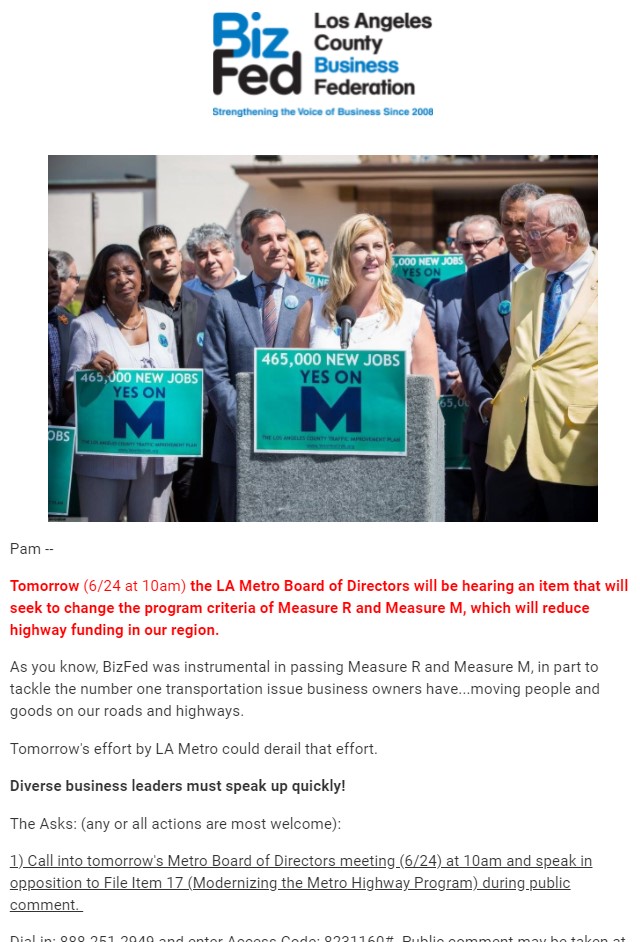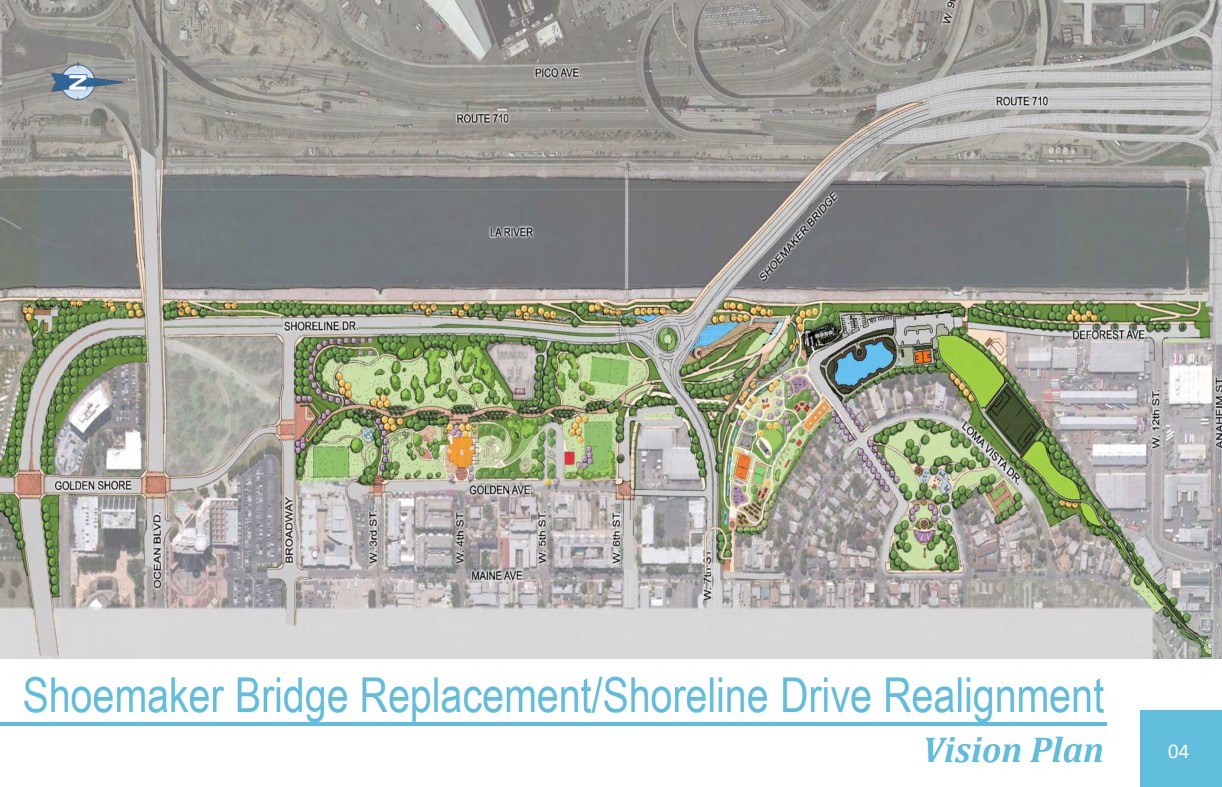Today, the full Metro board of directors approved modernizing the Metro Highway Program. The proposal faced significant resistance, though it essentially just reaffirms language that voters approved in Metro's Measure M transportation sales tax referendum.
The item does not change any current highway projects, but it allows for flexibility on future highway-funded projects, many of which are on city streets. The Metro Highway Program had blocked complete streets features from being included in projects funded by some Metro sales tax revenue. Now, where appropriate, these projects can include features that support transit, bicycling, and walking.
The problem arose from Metro's overly restrictive interpretation of the sales tax ordinance. Measure M defined “Highway Construction” as projects on “public highway and street rights-of-way… includ[ing] Complete Streets, Green Streets, and active transportation improvements such as bikeways and pedestrian improvements.” But Metro's Highway Program adopted guidelines that did not acknowledge this voter-approved, multimodal direction.
The just-adopted policy revision has been under discussion since mid-2020. Metro circulated the proposed policy for comment to various Councils of Governments, and while some voices there were critical of it, most COGs were ultimately supportive. The item was discussed at several Metro board meetings, including in March, when the board approved circulating the proposed language for a final three-month review.

Late yesterday, the L.A. County Business Federation (BizFed) came out against the proposal, stating that it would "reduce highway funding" and that it "must be fully vetted in the light of day." Several BizFed speakers used these talking points during public comment at today's Metro meeting.
A broad coalition of community groups - including many transit and active transportation nonprofits - submitted a group letter in favor of the proposal. Many public commenters spoke in favor of the proposal.
Ultimately, the entire Metro board unanimously approved the item, though several directors - County Supervisor Kathryn Barger, Whittier City Councilmember Fernando Dutra, and Glendale City Councilmember Ara Najarian - expressed some reservations.
The short-term effects of the new policy will not be dramatic, but two Long Beach projects that were essentially put on hold by the Gateway Cities Council of Governments can now move forward with Metro funding. Hopefully, in the longer term, Highway Program projects will include more multimodal components, providing the broad range of transportation options that voters approved in Measure M.






